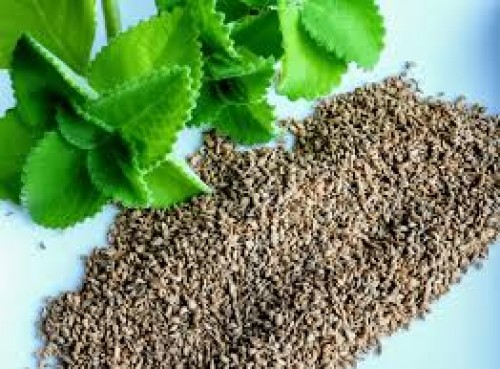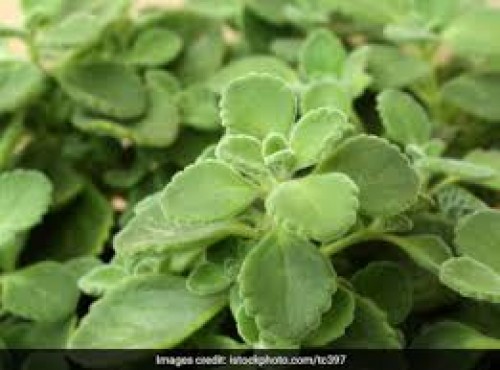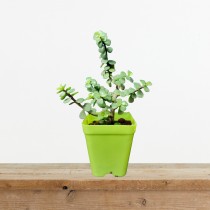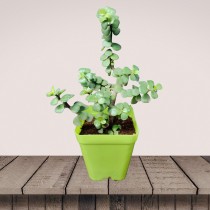off
-
Sold
-

-

out
Ajwain Plant: Nature, Care & Advantages
Ajwain (Botanical name: Trachyspermum ammi) is an aromatic herb commonly used in Indian cuisine and traditional medicine. It is also known as carom seeds or omam in some regions. Ajwain is prized for its distinct taste, which is hot, bitter, and somewhat peppery. The plant is not only a staple in cooking but also boasts several medicinal properties that make it a popular choice in Ayurvedic and home remedies.
Nature of the Ajwain Plant
Ajwain is a small, herbaceous plant that belongs to the Apiaceae family. The plant typically grows up to 1 meter in height and has feathery, aromatic leaves. It produces small white or pinkish flowers in umbrella-shaped clusters. Ajwain plants thrive in warm climates and require a sunny location to grow well. The seeds, which are harvested when the plant matures, have a strong, pungent aroma and are commonly used for their flavor and medicinal properties.
Care for the Ajwain Plant
- Climate: Ajwain plants prefer warm temperatures and full sunlight. They grow best in temperatures between 25°C to 35°C (77°F to 95°F). These plants are tolerant of drought conditions but thrive in a warm, dry climate.
- Soil: Ajwain prefers well-drained, sandy, or loamy soil. It does well in slightly alkaline soil with a pH level between 7.0 and 8.0. Good drainage is essential to avoid waterlogging, which can lead to root rot.
- Watering: The Ajwain plant requires moderate watering. Ensure that the soil is allowed to dry out slightly between waterings. Overwatering should be avoided to prevent water accumulation in the soil.
- Sunlight: Ajwain requires full sunlight to grow optimally. It should be planted in a location where it receives at least 6 hours of direct sunlight each day. A sunny spot will help the plant grow healthy and produce more seeds.
- Fertilization: Ajwain does not require heavy fertilization. It can benefit from occasional feeding with organic compost or a balanced fertilizer to improve soil fertility. Avoid over-fertilizing, as this can affect the flavor of the leaves and seeds.
- Pruning: Pruning is not necessary for the Ajwain plant, but it can help to remove dead or damaged leaves and stems. Pruning can also help in improving the overall growth of the plant and ensuring better airflow around it.
- Propagation: Ajwain can be propagated from seeds. Plant the seeds in well-drained soil, and they should germinate in about 7 to 10 days. Ajwain can also be grown in pots, making it an ideal plant for container gardening.
Advantages of the Ajwain Plant
- Medicinal Benefits: Ajwain has been used for centuries in traditional medicine due to its many health benefits. It is known to have anti-inflammatory, antimicrobial, and antioxidant properties. It is commonly used to relieve indigestion, bloating, and gas.
- Digestive Health: Ajwain is widely regarded as a digestive aid. It helps stimulate the production of gastric juices, improving digestion and alleviating symptoms of acidity, indigestion, and constipation. Ajwain is also effective in treating stomach ulcers.
- Relieves Respiratory Issues: Ajwain is often used in home remedies to treat colds, coughs, and bronchitis. Its antimicrobial properties help clear the airways, while its expectorant qualities assist in the expulsion of mucus from the lungs.
- Antibacterial and Antifungal: Ajwain has strong antibacterial and antifungal properties, making it useful for treating infections and preventing bacterial growth. It is often used in topical applications to treat skin infections and wounds.
- Helps with Weight Loss: Ajwain is believed to aid in weight loss by boosting the metabolism and improving digestion. Regular consumption of ajwain water can help reduce bloating and promote a feeling of fullness, which may aid in weight management.
- Improves Heart Health: Ajwain contains compounds that can lower cholesterol and blood pressure, promoting overall cardiovascular health. It is believed to have a positive effect on reducing the risk of heart disease when consumed regularly in small quantities.
- Culinary Uses: Ajwain is a popular spice in Indian, Middle Eastern, and Mediterranean cuisine. It adds a distinct flavor to curries, soups, stews, breads, and other savory dishes. It is also used in pickles and spice blends.
Conclusion
The Ajwain plant is an incredibly versatile herb, offering both culinary and medicinal benefits. Its easy care requirements and hardiness make it an excellent choice for gardeners, while its wide range of health advantages, from aiding digestion to improving heart health, make it an essential plant in both traditional medicine and modern wellness. Ajwain is not only beneficial but also a flavorful addition to a wide variety of dishes.

